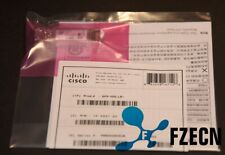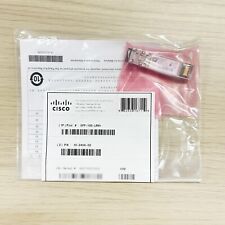-
Senior Member
registered user
You can read more about the options I used in the man page of mkisofs ( 8 )
-cache-inodes
Cache inode and device numbers to find hard links to files. If mkisofs finds a hard link (a file with multiple names), then the file will only appear once on the CD. This helps to save space on the CD. The option -cache-inodes is default on UNIX like operating systems. Be careful when using this option on a filesystem without unique inode numbers as it may result in files containing the wrong content on CD.
-hide-rr-moved
Rename the directory RR_MOVED to .rr_moved in the Rock Ridge tree. It seems to be impossible to completely hide the RR_MOVED directory from the Rock Ridge tree. This option only makes the visible tree better to understand for people who don't know what this directory is for. If you need to have no RR_MOVED directory at all, you should use the -D option. Note that in case that the -D option has been specified, the resulting filesystem is not ISO9660 level-1 compliant and will not be readable on MS-DOS. See also NOTES section for more information on the RR_MOVED directory.
-no-bak
Do not include backup files files on the iso9660 filesystem. If the -no-bak option is specified, files that contain the characters '~' or '#' or end in '.bak' will not be included (these are typically backup files for editors under unix).
-pad
Pad the end of the whole image by 150 sectors (300 kB). If the option -B is used, then there is a padding at the end of the iso9660 partition and before the beginning of the boot partitions. The size of this padding is chosen to make the first boot partition start on a sector number that is a multiple of 16.
The padding is needed as many operating systems (e.g. Linux) implement read ahead bugs in their filesystem I/O. These bugs result in read errors on one or more files that are located at the end of a track. They are usually present when the CD is written in Track at Once mode or when the disk is written as mixed mode CD where an audio track follows the data track.
To avoid problems with I/O error on the last file on the filesystem, the -pad option has been made the default.
-x path
Exclude path from being written to CDROM. path must be the complete pathname that results from concatenating the pathname given as command line argument and the path relative to this directory. Multiple paths may be excluded. Example:
Code:
mkisofs -o cd -x /local/dir1 -x /local/dir2 /local
NOTE: The -m and -x option description should both be updated, they are wrong. Both now work identical and use filename globbing. A file is excluded if either the last component matches or the whole path matches.
At least -pad seems to be unnecessary with new versions of mkisofs.
 Posting Permissions
Posting Permissions
- You may not post new threads
- You may not post replies
- You may not post attachments
- You may not edit your posts
-
Forum Rules


New Precision DWDM SFP+ 10G 80km Tunable Transceiver 50GHz C-Temp DWDM-SFP10G-C
$90.00

LOT OF 20 Genuine Cisco SFP-10G-SR V03 10GBASE-SR SFP+ Transceiver Module
$90.25

New Cisco GLC-TE 1G SFP Copper RJ45 100m 1000BASE-T Transceiver Module
$22.32

NEW Sealed Cisco SFP-10G-LR 10GBASE-LR SFP+ 1310nm 10km *US Shipping*
$19.20

🔥🔥🔥 CISCO SFP-10G-SR V03 10-2415-03 850nm 10GBASE-SR SFP+ Multi Module 🔥🔥🔥
$6.80

HP 560SFP+ 2-Port 10GB SFP+ PCIe (High Profile) Network Adapter Card 669279-001
$12.49

GENUINE Cisco SFP-10G-SR V03 SFP+ GBIC Transceiver Module 10-2415-03
$6.80

FLYPRO Fiber 10GBase-T Transceiver, SFP+ to RJ45 10Gb Ethernet Copper Module
$40.00

New Cisco SFP-10G-LRM 10G SFP+ LRM 1310nm 220m SMF/MMF LC Module
$33.24

For Cisco SFP-10G-T, Ubiquiti UF-RJ45-10G Transceiver, SFP+ to RJ45 10GBase-T
$49.99



 Reply With Quote
Reply With Quote










